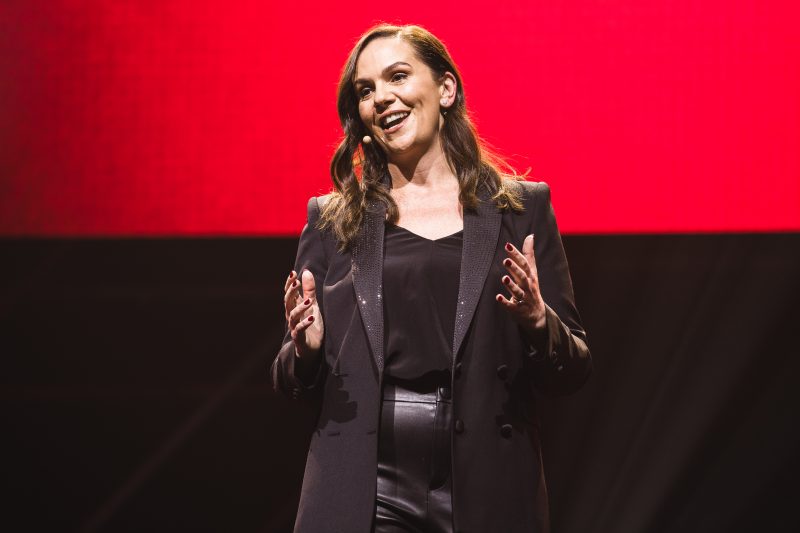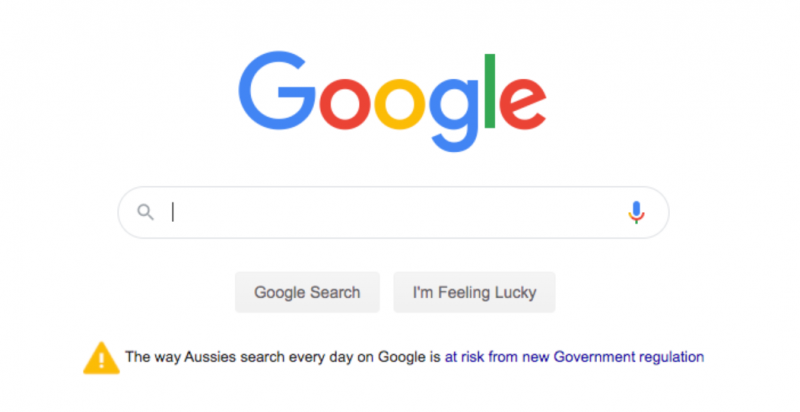Google’s Australian MD, Mel Silva, has warned that the ACCC’s News Media Bargaining Code will force it to significantly decrease the value of its Search and Youtube platforms for Australians.
In an open letter posted this morning, Silva said the changes ‘could lead to [consumer] data being handed over to big news businesses, and would put the free services [consumers] use at risk in Australia’.

Silva warns Australian consumers will be ‘hurt’ by ACCC code
The proposed code from the Australian Competition and Consumer Commission (ACCC) would see media owners and publishers in Australia given the power to bargain with tech platforms, including Google and Facebook, over a fair price for news content.
ADVERTISEMENT
But Silva has warned Australians that should the code be supported by the Federal Government it could ‘hurt’ the way consumers use Google Search and Youtube.
“A proposed law, the News Media Bargaining Code, would force us to provide you with a dramatically worse Google Search and YouTube, could lead to your data being handed over to big news businesses, and would put the free services you use at risk in Australia,” read the letter.
The letter warns that news media outlets would be given an ‘unfair advantage’ over everyone else who uses Youtube or Google, including small business owners.
“News media businesses alone would be given information that would help them artificially inflate their ranking over everyone else, even when someone else provides a better result. We’ve always treated all website owners fairly when it comes to information we share about ranking. The proposed changes are not fair and they mean that Google Search results and YouTube will be worse for you,” said Silva.
Silva also told Australians that their data ‘may be at risk’ following the changes, with Google forced to tell news media businesses how to gain access to consumer data which Google would then not be able to protect.
“We deeply believe in the importance of news to society. We partner closely with Australian news media businesses — we already pay them millions of dollars and send them billions of free clicks every year. We’ve offered to pay more to license content,” concluded Silva.
“But rather than encouraging these types of partnerships, the law is set up to give big media companies special treatment and to encourage them to make enormous and unreasonable demands that would put our free services at risk.”
Silva says the tech giant is planning to do ‘everything we possible can’ to have the code changed and continue to build relationships with news media businesses on its own terms.

Google has included a warning on its homepage from today
Google had promised earlier this year that it would work with publishers to establish a new licensing deal which would see it pay some publishers for news. Those plans have been put on ice now while the tech platform deals with the new code and its ramifications.
As part of the Publisher Curated News initiative, Google had deals in place with InDaily publisher Solstice Media, Crikey publisher Private Media, The Saturday Paper publisher Schwartz Media and Australian Community Media (ACM).
At the time, Schwartz Media CEO Rebecca Costello said the initiative would champion ‘quality journalism’.
“This is a chance to take a leading role in putting quality journalism in front of people. It helps take the rigour of what we do at The Saturday Paper and The Monthly, and connect it to broader audiences. It is one way of addressing the age of misinformation in which we live,” she said.
Google also took the chance this morning to warn the Youtube community of creators about the code and how it will impact their content.
“There are several areas that deeply concern us about this proposed law because it prioritises the traditional news industry over smaller creators of content and the platforms where they find an audience. We are particularly concerned that it provides unfair advantages to large news businesses over anyone else online, including the very creators that make Youtube, Youtube,” said Gautam Anand, head of Youtube APAC, in a blog post.
The post threatens creators with the possibility of earning less revenue and receiving fewer views if media owners were provided with more information about boosting their content.
“It will create an uneven playing field when it comes to who makes money on Youtube. Through the Youtube Partner Programme, we already share revenues with partners who monetise on Youtube, including news publishers—and we are proud to support quality journalism. But through this law, big news businesses can demand large amounts of money above and beyond what they earn on the platform, leaving fewer funds to invest in you, our creators, and the programmes to help you develop your audience in Australia and around the globe,” said Anand.
from WordPress https://ift.tt/3iMj81b
via IFTTT


0 Comments